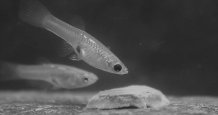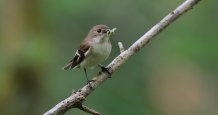Psychology news archive 2018

‘Hangxiety’ higher in shy people
Very shy people are more likely to suffer “hangxiety” – anxiety during a hangover – than their extrovert friends, new research shows.

Female vets still face discrimination
Female vets still face discrimination, a new study has revealed.

‘Boost confidence and motivation to stop vets quitting’
Employers and employees must work together to tackle issues of confidence and motivation, as a new report from the British Veterinary Association (BVA) reveals day-to-day experiences in the workplace are the biggest drivers for burnout and exit from the veterinary profession.

Female volunteers needed for stress study
Researchers at the University of Exeter are looking for volunteers to help them explore whether assigning a more positive meaning to a stressful event can reduce stress and improve emotional wellbeing.

Health services must address multiple conditions in dementia care
Most people living with dementia also have at least one other health condition, and health services need to adapt to optimise their health and quality of life, a new study concludes.

Theresa May on ‘glass cliff’ as prime minister
Theresa May was put on a “glass cliff” when she became UK prime minister after the Brexit vote, a leading researcher says.

Brett Kavanaugh: why Republican women may be willing to overlook sexual assault allegations
Postdoctoral Research Fellow at the University of Exeter, writes for the Conversation UK

Mental Well-Being Related to Better Brain Health in Older Adults
A positive sense of mental well-being is related to better brain health among older adults, according to a new report issued today by the Global Council on Brain Health (GCBH) and involving University of Exeter research.

MPs to consider brain injury report
MPs will consider a report by scientists on the services available to people with an Acquired Brain Injury (ABI).

App to understand and improve the mental health of young people
Teenagers’ attachment to their smart phones is being harnessed to prevent anxiety and depression and improve wellbeing.

‘I just don’t fancy drinking’ – Exeter study helping alcoholics
“I suppose I’d say I was high-functioning but still a problem drinker. I drank in the evenings and although I wasn’t in trouble with the police, or going broke, or getting ill, if you drink at that level, it takes a toll.”

16-24 year olds are the loneliest age group, according to new BBC Radio 4 survey
BBC Radio 4 has today announced the results of The Loneliness Experiment, a nationwide survey conducted by BBC Radio 4’s All In The Mind in collaboration with Wellcome Collection. It is the largest survey into the issue of loneliness to date.

Dog intelligence ‘not exceptional’
People who think dogs are exceptionally intelligent are barking up the wrong tree, new research shows.

One foot in the grave for pheasants that favour a side
Pheasants that more strongly favoured one foot over the other die younger than those that don’t, new research suggests.

Study reveals night-time habits of captive flamingos
What do captive flamingos do at night, when their zoo or wildlife park is closed?

Beluga whales and narwhals go through menopause
Scientists have discovered that beluga whales and narwhals go through the menopause.

Therapy that helps people with dementia maintain lifestyles rolled out
A technique that helps people with dementia see satisfying progress in achieving everyday goals that help them live their lives is now being rolled out.

Guppies change their eye colour to deter rivals
Tiny fish called Trinidadian guppies turn their eyes black to warn other fish when they are feeling aggressive, new research shows.

Stories to help children cope
An educational psychologist has created stories to help children deal with issues such as anxiety and depression.

Goal conflict linked to psychological distress
Being torn about which personal goals to pursue is associated with symptoms of psychological distress, new research shows.

Exhibition highlights tales and imagery of life with dementia
A public exhibition will feature poems, cartoons and images created by well-known artists working with people with dementia.

Volunteers needed for caffeine and mood study
The links between caffeine, physical activity and mood will be examined by a new University of Exeter study.

Research reveals key factors to support quality of life in dementia
A robust research analysis has identified what factors can be targeted to support people to live as well as possible with dementia.

Hungry birds as climate change drives food ‘mismatch’
Warmer springs create a “mismatch” where hungry chicks hatch too late to feast on abundant caterpillars, new research shows.

World Bipolar Day: University working on new treatments
Exeter experts are working on new treatments for Bipolar Disorders this World Bipolar Day (30 March).

Check offenders for history of head injuries, experts say
Offenders should be routinely checked for signs of past head injuries, researchers say.

Grey squirrels beat reds in ‘battle of wits’
Problem-solving powers may help to explain why grey squirrels have taken over from native red squirrels in the UK, new research says.

BBC Radio 4’s All in the Mind launches loneliness survey
A new survey about people’s experiences of loneliness launches today on BBC Radio 4’s All in the Mind.

Bipolar mood swings trial recruiting participants
People who have bipolar or cyclothymic disorder and live in Devon are being recruited for a scientific study.

Dominant male pheasants learn faster
Dominant male pheasants learn faster than their downtrodden rivals, new research shows.

Ex-forces personnel needed for study
The University of Exeter is inviting Armed Forces veterans who were deployed to a combat zone during their career to take part in a research study.

Brain food: How to eat well for a healthy brain in later life
A new international report gives the clearest evidence to date on the impact of diet on brain health in older adults.

Over-60s needed for memory study
People aged over 60 who suffer minor memory problems are needed for a new study at the University of Exeter.

Gut instinct makes animals appear clever
Animals, including humans, can make surprisingly good decisions just based on the food in their stomach, new research suggests.

Animals shield their families from a harsh world
Animals living in volatile habitats can gain major evolutionary benefits by shielding their families from the changing environment, new research suggests.
